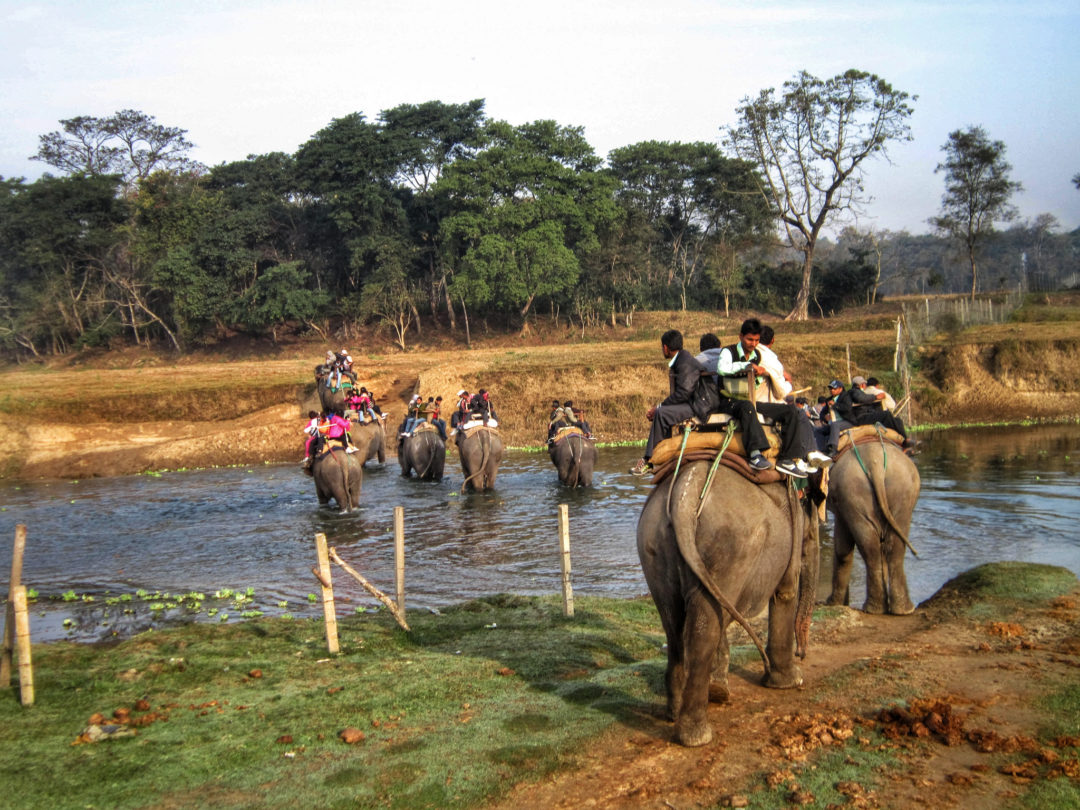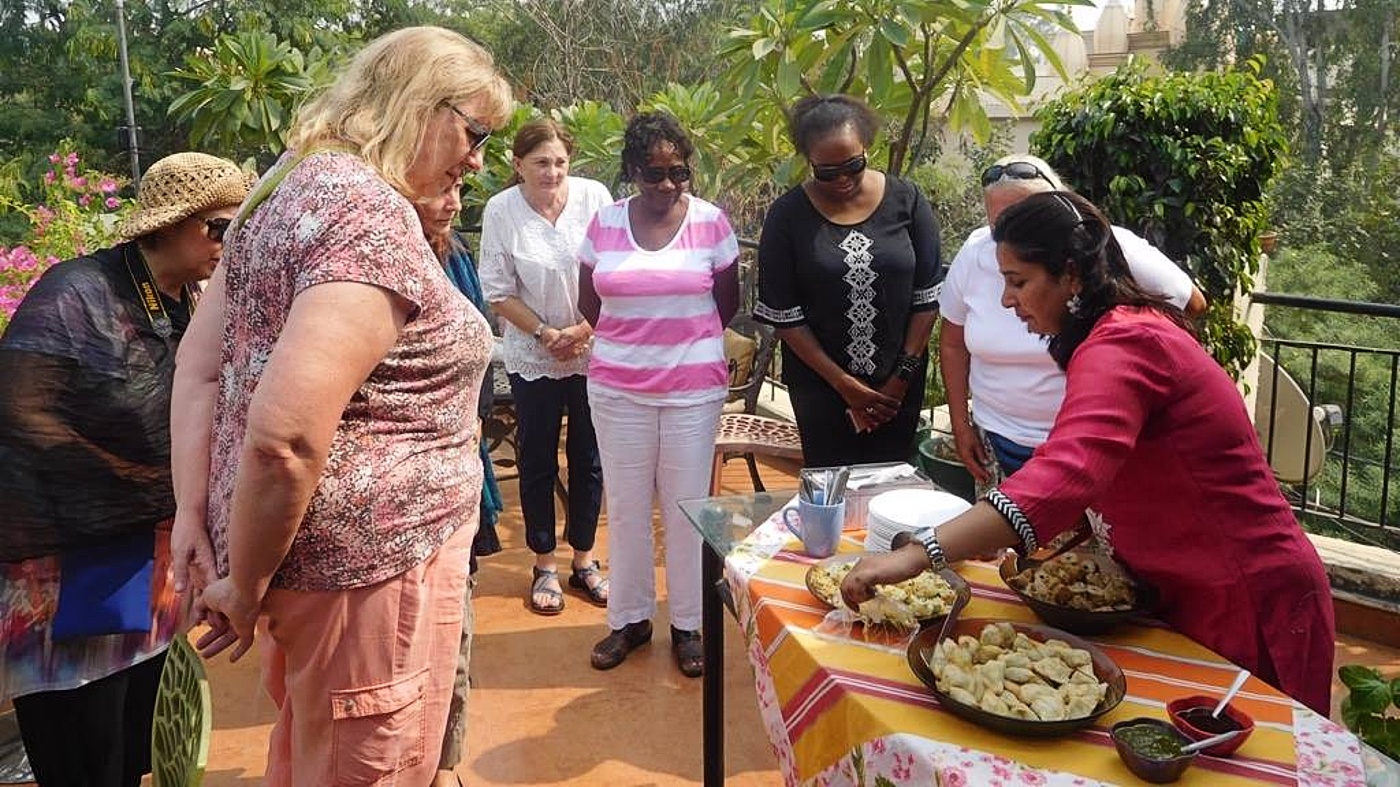Travelling is such a devastating force that I don’t understand why the subject is not on the main agenda of all elections and public discussions around the world.
It is remarkable to see how many more people traverse borders today than in centuries before. 2020 will see 1.6 billion people traveling, up from 25 million in the 1950s, and that figure is growing swiftly.
A significant influence is being felt on local life, the environment, and infrastructures as a result of the large numbers that tourism is bringing to the most popular sites.
Impact Of Overtourism

There are as of now objections that in a real sense shutting down to the travel industry, similar to the renowned Maya Ocean side in Thailand (from the film: The Ocean side) and Boracay in the Philippines.
Different objections like Venice are forcing fines for straightforward ways of behaving like plunking down in non assigned regions and Komodo Island will be shut to vacationers in 2020 for no less than one year in work to rejuvinate the island and work on the protection of the Komodo Dragon.But, travel is great for our general public, assuming everybody on the planet eventually in life got the opportunity to venture to the far corners of the planet I have no question our general public would be greatly improved.
Ethical Travel Tips – How To Reduce Your Travel Footprint
We want to “realize” how to travel and make a positive effect or generally the advantages of voyaging will be eclipsed by the negative effects.Hopefully later on, coordinated in our essential training we will see “a how-to travel” course for all understudies.
Up to that point, we can do our part and learn and impart to others best practices for a solid voyaging society. Also, for that, one need to think on the two sides: the climate (lessen influence) and on the general public (be impartial or positive)
1. Pick the Right Destination

Selecting the right destination is a pivotal decision in the realm of ethical travel. It has far-reaching implications for the environment, local communities, and cultural preservation. Ethical travel guidelines emphasize the importance of making thoughtful and responsible choices when deciding where to go. Here’s why selecting the right destination matters and how you can do so while minimizing your impact:
Preservation of Fragile Ecosystems: Some destinations are more ecologically sensitive than others. Ethical travelers consider the potential impact of their presence on the local environment, choosing destinations where ecosystems can withstand visitation without undue harm.
Supporting Sustainable Tourism: By choosing destinations that prioritize sustainable tourism practices, you contribute to the well-being of local communities. Sustainable destinations often have responsible infrastructure and initiatives in place to minimize environmental and cultural degradation.
Respecting Cultural Heritage: Ethical travelers respect the cultural heritage of the places they visit. They choose destinations where cultural preservation is a priority and ensure they engage with local customs and traditions respectfully.
Conservation of Wildlife: Some destinations are renowned for their biodiversity and unique wildlife. Ethical travelers are mindful of the potential impact of their presence on these ecosystems and select destinations that prioritize responsible wildlife tourism.
Promoting Responsible Tourism: By picking destinations that promote responsible tourism, you support the industry’s efforts to minimize negative effects on the environment and local communities.
Avoiding Overcrowded Spots: Ethical travelers may opt for less crowded destinations to minimize their contribution to overtourism, which can strain resources and negatively impact local residents and cultures.
How to Pick the Right Destination Ethically:
- Research Extensively: Conduct thorough research on potential destinations. Look for information about their environmental policies, cultural preservation efforts, and commitment to responsible tourism.
- Seek Authentic Experiences: Choose destinations that offer authentic cultural experiences and opportunities for meaningful engagement with local communities.
- Support Lesser-Known Places: Consider exploring lesser-known or emerging destinations that may not be on the typical tourist trail. Your visit can help boost their local economies while reducing overcrowding in popular spots.
- Understand the Impact: Evaluate the potential environmental and cultural impact of your visit. Ask yourself if your presence is likely to contribute positively to the destination.
- Check Conservation Efforts: If wildlife encounters are part of your travel plans, research destinations with strong conservation efforts and responsible wildlife tourism practices.
- Respect Local Regulations: Be aware of and adhere to local regulations and guidelines for responsible tourism, such as those related to wildlife viewing, environmental protection, and cultural preservation.
- Support Local Communities: Choose destinations that prioritize community-based tourism initiatives and support local communities through your travel activities.
2. Transportation

In the realm of ethical travel, transportation choices hold significant sway over your environmental impact and the overall sustainability of your journey. Ethical travel guidelines underscore the importance of making conscious decisions when it comes to how you move from one place to another while minimizing your carbon footprint. Here’s why transportation matters and how you can practice ethical travel in this aspect:
Reducing Carbon Emissions: One of the primary motivations for ethical transportation choices is the need to reduce carbon emissions. Transportation is a major contributor to greenhouse gas emissions, and by opting for more sustainable modes of travel, you can significantly lower your personal carbon footprint.
Choosing Sustainable Modes: Ethical travelers prioritize sustainable modes of transportation whenever possible. This includes opting for trains or buses over domestic flights, choosing energy-efficient vehicles, carpooling, or even walking and cycling for short distances.
Public Transport and Ride-Sharing: Whenever you find yourself in urban areas, ethical travel encourages the use of public transportation systems or ride-sharing services. These options reduce traffic congestion and the need for personal vehicles.
Eco-Friendly Vehicles: If you must rent a vehicle, consider choosing an eco-friendly or electric car, which has a lower environmental impact than traditional gasoline-powered cars. Additionally, research rental companies with strong environmental policies.
Offsetting Your Carbon Emissions: Some travelers opt to offset their carbon emissions by investing in projects that reduce or capture an equivalent amount of greenhouse gases. This can be a way to balance the environmental impact of your travel.
Minimizing Domestic Flights: Whenever possible, ethical travel discourages excessive domestic flights, as these tend to have a higher carbon footprint per passenger mile compared to alternative forms of transportation.
Packing Light: Reducing the weight of your luggage can contribute to more fuel-efficient travel. Ethical travelers pack only what’s necessary, avoiding excessive baggage that may require larger, less efficient planes or vehicles.
Supporting Sustainable Transportation Initiatives: Many destinations are implementing sustainable transportation initiatives, such as bike-sharing programs, electric public buses, and pedestrian-friendly streets. Support these efforts by using them during your stay.
Planning Efficient Routes: Ethical travelers plan their itineraries efficiently to minimize backtracking or unnecessary long-distance travel. This not only saves time but also reduces fuel consumption.
Local Transportation and Walking: Exploring your destination on foot or by using local transportation methods like trams, buses, and subways can be a rewarding way to immerse yourself in the local culture while minimizing your environmental impact.
3.Choose Green Housing

Another significant choice you can make is where you are spending your evenings. Eco-logding is currently all over however we should be cautious with greenwashing.
Use Reputable Sites
- There are some housing web crawlers represented considerable authority in carbon-cognizant organizations like Book Unique.
- Another choice is to utilize AirBnb’s component called Novel Houses and search for additional well disposed choices.
Green Key certificate is quite possibly of the main certificate that gives some certainty you are settling on a superior choice, search for their stamp. Book eco-accommodating housing choices, however check to ensure their cases are genuine.
4. Ethical Travel Activities

Ethical travel goes beyond just transportation and accommodation choices; it extends to the very activities and experiences you engage in while exploring new destinations. It encourages you to consider the impact your activities have on the environment, local communities, and cultural heritage. Here’s why ethical travel activities matter and how you can incorporate them into your journeys:
Preserving Cultural Heritage: Ethical travel activities prioritize the preservation of cultural heritage. This involves respecting historical sites, monuments, and artifacts by adhering to established rules and guidelines, and refraining from activities that could damage or degrade these valuable treasures.
Responsible Wildlife Encounters: Ethical travelers prioritize responsible wildlife encounters, such as wildlife safaris that respect the animals’ natural behaviors and habitats. They avoid activities that involve the exploitation or mistreatment of animals, like captive dolphin shows or riding elephants.
Supporting Local Artisans: Ethical travel encourages you to engage with local artisans and support their craft. Participating in craft workshops, buying handmade souvenirs, and appreciating indigenous artistry are ways to contribute positively to the local economy and cultural preservation.
Cultural Immersion: Ethical travelers seek authentic cultural immersion experiences. This may include attending local festivals, participating in traditional ceremonies, or learning about and respecting local customs and traditions.
Eco-Friendly Adventures: Ethical travel promotes eco-friendly adventures that minimize the environmental impact. Activities like hiking, kayaking, and snorkeling are often chosen for their minimal disturbance to natural ecosystems.
Volunteer and Community Engagement: Some ethical travelers choose to give back to the communities they visit by volunteering with local organizations or participating in community-based tourism initiatives. These experiences foster meaningful connections and contribute to local development.
Culinary Exploration: Food is a significant part of any culture, and ethical travelers embrace culinary exploration by dining at local restaurants, tasting traditional dishes, and supporting local food markets. It’s a delicious way to appreciate cultural diversity and boost the local economy.
Educational Tours: Guided tours that provide educational insights into a destination’s history, ecology, and culture are often favored by ethical travelers. These tours offer valuable knowledge and appreciation for the places visited.
Responsible Photography: Ethical travelers practice responsible photography by seeking permission before taking photos, respecting photography restrictions, and refraining from intrusive or disrespectful photography practices.
Leave No Trace Principles: Whether in natural landscapes or cultural sites, ethical travelers adhere to Leave No Trace principles, ensuring they leave no physical or environmental impact behind.
5. Reduce Waste

In the pursuit of ethical travel, reducing waste is a fundamental guideline that not only benefits the environment but also promotes responsible tourism. Travel often generates a substantial amount of waste, from single-use plastics to disposable items. Ethical travelers are committed to minimizing their waste footprint, and here’s why it’s crucial and how you can practice it during your journeys:
Environmental Impact: The environmental impact of waste disposal is a global concern. Irresponsible waste management can lead to pollution, harm to wildlife, and damage to natural ecosystems. Reducing waste during travel helps mitigate these issues and contributes to a cleaner and healthier planet.
Preserving Natural Beauty: Many travelers are drawn to destinations for their natural beauty. By reducing waste, you help preserve these landscapes, ensuring they remain pristine and inviting for generations to come.
Respecting Local Environments: Ethical travelers respect the local environments they visit. Reducing waste is a way to show reverence for the natural wonders and cultural heritage of a place.
Limiting Plastic Pollution: Single-use plastics are a significant contributor to environmental pollution, especially in coastal and remote areas. Ethical travelers minimize their use of plastic products and seek alternatives such as reusable containers and bags.
Conserving Resources: Waste reduction also conserves valuable resources. Many products, especially those made from plastic, require significant energy and resources to manufacture. By using fewer disposable items, you help conserve these resources.
How to Reduce Waste Ethically:
- Pack Reusable Items: Bring reusable water bottles, coffee cups, utensils, and shopping bags. These items eliminate the need for single-use plastics and disposables.
- Avoid Single-Use Plastics: Refrain from purchasing items packaged in single-use plastics, such as bottled water. Instead, carry a reusable water bottle and use water purification methods when needed.
- Choose Eco-Friendly Accommodations: Opt for accommodations that prioritize eco-friendly practices and reduce waste through recycling programs and energy-saving initiatives.
- Mindful Consumption: Make thoughtful choices when shopping and dining. Avoid excessive packaging, and support local businesses that embrace eco-friendly practices.
- Pack Responsibly: Bring only what you need and avoid overpacking. This not only reduces waste but also makes travel more convenient.
- Recycle and Dispose Responsibly: Use designated recycling and waste disposal facilities. If these options aren’t available, carry your waste until you find an appropriate place to dispose of it.
- Participate in Clean-Up Efforts: Join local or organized clean-up efforts during your travels to contribute to the cleanliness of the destinations you visit.
- Educate Yourself: Learn about local waste disposal practices and adhere to them. Be aware of recycling and waste separation guidelines specific to your destination.
HOW TO TRAVEL WITH A BETTER IMPACT
6. Travel Slow: The Art of Savoring Every Moment

In a fast-paced world where efficiency often takes precedence, “Travel Slow: The Art of Savoring Every Moment” invites you to embrace a different approach to exploration—one that prioritizes depth over speed and quality over quantity.
This enchanting article delves into the philosophy of slow travel, where the journey itself becomes a destination. It encourages travelers to immerse themselves in the local culture, connect with the people, and savor the nuances of each place they visit. Here’s a glimpse of what this thoughtful piece has in store:
- Slow Travel Defined: Explore the concept of slow travel and how it contrasts with the typical whirlwind tourist experience. Learn how it encourages travelers to move at a gentler pace and truly absorb the essence of a place.
- Mindful Exploration: Discover the art of mindfulness in travel, as we share techniques for being present in the moment and cultivating a deeper connection with your surroundings. Slow travel encourages you to use all your senses to engage with a place.
- Local Encounters: Read about the significance of genuine interactions with locals. We share heartwarming stories of travelers forging meaningful connections, from sharing meals with families in remote villages to participating in cultural exchanges.
- Exploring Off the Beaten Path: Slow travel encourages you to venture beyond the tourist hotspots and explore hidden gems. Learn how to uncover these lesser-known treasures and the joys of discovering unspoiled landscapes and authentic experiences.
- Culinary Experiences: Delight in the pleasures of slow food and farm-to-table dining. We’ll introduce you to the joy of savoring locally sourced cuisine, from street food to fine dining, and the stories behind the dishes.
- Sustainability and Ethical Choices: Understand how slow travel aligns with sustainable and ethical tourism practices. Learn how to reduce your environmental impact, support local economies, and leave a positive footprint on the places you visit.
- Wellness and Relaxation: Discover the rejuvenating side of slow travel, as we explore wellness retreats, spa experiences, and the benefits of disconnecting from the hustle and bustle of everyday life.
- Traveling Solo or with Family: Whether you’re a solo adventurer or traveling with family, slow travel can be tailored to suit your preferences. We provide insights into how individuals and families can embark on enriching slow travel journeys.
- Capturing Memories: Explore the art of storytelling through photography and journaling. Learn how to document your slow travel experiences to create lasting memories and share your adventures with others.
- Practical Tips: If you’re intrigued by the idea of slow travel, we offer practical tips and resources to help you plan your slow travel adventures, from selecting destinations to budgeting and itinerary planning.
7. The Joy of Eating Regionally

Embark on a culinary journey like no other with our article, “Savor the Flavor: The Joy of Eating Regionally.” This delectable exploration will tantalize your taste buds and open your eyes to the delicious world of regional cuisine.
In a globalized food landscape where fast food chains and international franchises have become ubiquitous, there’s something profoundly special about indulging in the authentic flavors of a region. This article celebrates the art of eating locally and regionally, revealing the rich tapestry of tastes, ingredients, and traditions that make each locale unique.
Here’s what you can expect from this mouthwatering article:
- The Essence of Regional Cuisine: Dive into the heart and soul of regional cuisine as we unravel the significance of local ingredients, time-honored recipes, and cultural influences. Discover how geography, climate, and history shape the flavors on your plate.
- Farm-to-Table Philosophy: Explore the farm-to-table movement, which emphasizes the freshness and sustainability of locally sourced ingredients. Learn how supporting local farmers and producers benefits both your palate and the environment.
- Taste of Tradition: Delight in the stories behind iconic regional dishes, from Italian pasta varieties passed down through generations to the spicy flavors of Indian curries and the soul-warming stews of the American South. Get ready for a culinary journey through time.
- Hidden Gems: Uncover hidden culinary gems and local delicacies that you may not find in mainstream restaurants. From street food stalls to off-the-beaten-path eateries, we’ll guide you to the best-kept food secrets.
- Food and Community: Understand the role of food in fostering a sense of community. Discover how regional cuisine brings people together, with food festivals, markets, and communal cooking traditions that showcase the power of food as a cultural unifier.
- Sustainable Eating: Learn about the environmental benefits of eating regionally, including reduced carbon footprints, less food waste, and support for sustainable farming practices. Eating locally can be a delicious way to contribute to a healthier planet.
- Culinary Travel: If you’re a passionate traveler, we’ll offer tips on how to incorporate regional cuisine into your adventures. Discover the joy of exploring a new place through its food.
- Recipes and Cooking Tips: Want to recreate regional dishes at home? We’ll provide you with authentic recipes and cooking tips so you can savor the flavors of your favorite regions in your own kitchen.
- Food and Identity: Explore how regional cuisine is deeply intertwined with cultural identity and heritage. Learn how food can be a powerful expression of a community’s history and values.
- Where to Start: Not sure where to begin your regional culinary adventure? We’ll offer suggestions and resources for finding the best regional dining experiences near you or during your travels.
8. Buying Direct from Local Businesses

When it comes to ethical travel, one of the most impactful choices you can make is to buy directly from local businesses. This simple yet powerful guideline has a ripple effect on the communities you visit, promoting economic sustainability and cultural authenticity. Here’s why it matters and how you can embrace this practice during your travels:
Supporting Local Economies: Purchasing goods and services directly from local businesses ensures that a significant portion of your money stays within the community. This support can make a substantial difference in the livelihoods of local artisans, entrepreneurs, and families who rely on tourism for their income.
Authentic Souvenirs: Buying locally-made products, crafts, and souvenirs allows you to take home a piece of the destination’s culture. Instead of mass-produced trinkets, you’ll find unique items that tell a story, such as handmade textiles, traditional pottery, or indigenous artwork. These purchases become cherished reminders of your journey.
Culinary Adventures: Dining at local restaurants, markets, and street stalls not only tantalizes your taste buds with authentic flavors but also contributes directly to the local food industry. Savoring regional dishes prepared by skilled cooks offers a genuine gastronomic experience while benefiting the local culinary scene.
Cultural Exchange: Engaging with local businesses fosters cultural exchange and understanding. You can interact with the people behind the products, learn about their traditions, and gain insights into their way of life. This personal connection enhances your travel experience and promotes a sense of global unity.
Environmental Impact: Supporting local businesses often means you’re buying products with a lower environmental footprint. Locally sourced goods and handcrafted items are usually produced with more sustainable practices, reducing the carbon footprint associated with transportation and manufacturing.
Tips for Buying Directly from Local Businesses:
- Research Ahead: Before your trip, research local businesses and artisans at your destination. Look for markets, boutiques, and restaurants that prioritize locally sourced ingredients and products.
- Ask Locals for Recommendations: Seek recommendations from locals or your accommodation hosts for authentic, locally owned businesses. They can often point you to hidden gems that may not be listed in tourist guides.
- Haggle Responsibly: In some cultures, haggling is a customary practice. However, do so respectfully, keeping in mind the fair value of the product or service. Remember that your goal is to support local businesses, not to negotiate the lowest price.
- Buy Directly from Artisans: Whenever possible, purchase directly from artisans and craftsmen. This ensures that your money goes directly into the hands of the creators, supporting their skills and preserving cultural heritage.
- Support Sustainable Practices: Seek out businesses that prioritize sustainability, such as those using eco-friendly materials or supporting fair labor practices.

“Embrace, Engage, and Respect: Navigating Local Cultures Responsibly” is a comprehensive guide that champions the art of culturally sensitive travel. In a world that is becoming increasingly interconnected, this guidebook offers a roadmap for travelers who seek to not only explore the globe but also to do so with a heightened sense of awareness and respect for the diverse cultures they encounter.
This resource dives deep into the following key aspects of responsible cultural exploration:
- Embrace Diversity: It underscores the beauty of our world’s cultural diversity and encourages travelers to embrace it with an open heart. It emphasizes the value of curiosity and a willingness to learn from different cultures.
- Engage Authentically: The guide provides insights on how to engage with local communities in a meaningful and genuine manner. It offers practical tips on connecting with locals, participating in cultural events, and forming connections that transcend language barriers.
- Respect Local Traditions: The guide underscores the importance of respecting local customs, traditions, and etiquettes. It offers cultural insights that help travelers navigate unfamiliar territory with grace and sensitivity.
- Ethical Photography: It discusses responsible photography practices, reminding travelers to seek consent when photographing individuals and respecting sacred sites’ photography restrictions.
- Cultural Etiquette: The guide delves into cultural etiquette and how to conduct oneself appropriately in various cultural contexts. It equips travelers with the knowledge needed to avoid unintentional cultural misunderstandings.
- Responsible Consumption: It encourages travelers to support local artisans, markets, and businesses to contribute positively to the local economy and preserve traditional craftsmanship.
- Environmental Responsibility: The guide also touches on the importance of minimizing one’s environmental footprint while respecting the natural world that is often closely tied to cultural practices.
- Mindful Travel: It promotes mindfulness in travel, emphasizing the significance of being present in the moment and savoring the cultural experiences that unfold.
- Cultural Exchange: The guide shares stories of travelers who have had transformative experiences through cultural exchanges, highlighting the profound impact of respectful engagement.
10.Wildlife and Nature Conservation:

In the realm of ethical travel, one of the most crucial aspects is the commitment to wildlife and nature conservation. This ethical travel guideline not only enriches your travel experiences but also plays a vital role in preserving the world’s natural wonders for generations to come.
Here’s a closer look at why wildlife and nature conservation matters and how you can practice it during your travels:
Protecting Biodiversity: Wildlife and nature conservation is fundamentally about safeguarding Earth’s rich biodiversity. It acknowledges that the planet’s diverse ecosystems, from lush rainforests to pristine coral reefs, are invaluable and irreplaceable. By respecting these environments, you ensure their survival.
Responsible Wildlife Viewing: Ethical travel encourages responsible wildlife viewing. This means observing animals in their natural habitats with minimal disturbance, adhering to established viewing guidelines, and not engaging in activities that harm or stress wildlife.
Choosing Sustainable Tours and Activities: Travelers are urged to support tours and activities that prioritize conservation efforts. This can include visits to ethical wildlife sanctuaries, participation in eco-friendly excursions, and engagement in activities that raise awareness about the importance of wildlife protection.
Preserving Fragile Ecosystems: Ethical travel advocates for the protection of fragile ecosystems. It emphasizes the need to tread lightly in delicate environments, such as fragile desert ecosystems, wetlands, and pristine beaches, to prevent damage to these sensitive areas.
Combatting Wildlife Trafficking: Responsible travelers are encouraged to be vigilant against wildlife trafficking and the purchase of products made from endangered species. By refusing to buy such items, you help reduce the demand for illegal wildlife trade.
Supporting Conservation Initiatives: Ethical travelers often choose to support local and global conservation initiatives. This can include donating to wildlife conservation organizations, participating in volunteer programs, or simply spreading awareness about conservation challenges.
Eco-Friendly Accommodations: Staying in eco-friendly accommodations, such as eco-lodges or sustainable resorts, contributes to conservation efforts. These establishments often have environmentally responsible practices and support local conservation projects.
Minimizing Your Impact: The ethical traveler is conscious of their environmental footprint. This includes reducing waste, conserving water and energy, and adhering to Leave No Trace principles to minimize disruption to natural landscapes.
Learning and Education: Ethical travel encourages learning about local ecosystems, wildlife, and conservation efforts. Engaging with local experts and guides can provide valuable insights into the challenges and successes of conservation in the region.
In conclusion
The journey toward ethical travel is a transformative one, guided by principles that enrich not only our own experiences but also the places we visit and the people we meet along the way. These ethical travel guidelines remind us that our choices as travelers carry a profound responsibility—one to protect and preserve the environment, respect and honor diverse cultures, and support local communities.

As we embark on our journeys with these ethical principles in mind, we become global citizens, embracing the interconnectedness of our world and recognizing that our actions can either leave a positive or negative impact. By picking the right destinations, reducing waste, supporting local businesses, engaging respectfully with local cultures, and making conscious choices in transportation, accommodation, and activities, we embark on a path of responsible exploration.
Ethical travel isn’t a mere trend; it’s a call to action—a collective effort to safeguard our planet’s beauty and cultural heritage for generations to come. It’s a commitment to cherishing the fragile ecosystems, traditions, and stories that make our world so wonderfully diverse. It’s an invitation to journey with intention, to savor the flavors, embrace the moments, and leave behind a legacy of respect and appreciation.
So, as you plan your next adventure, remember these ethical travel guidelines. Let them be your compass, guiding you toward a more meaningful and responsible exploration of our extraordinary world. Travel not just for the sake of discovery, but to make a positive impact, one step, one experience, and one destination at a time. Together, as ethical travelers, we can create a better, more sustainable future for travel—one that celebrates our shared humanity and the incredible tapestry of life that adorns our planet.
FAQs For HOW TO TRAVEL WITH A BETTER IMPACT: ETHICAL TRAVEL GUIDELINES
1. Why should I care about ethical travel?
Traveling ethically not only enriches your own experiences but also contributes positively to the places you visit and the global environment. It’s a way to explore the world while leaving a meaningful and responsible impact.
2. What’s wrong with traditional tourism?
Traditional tourism often results in overtourism, environmental degradation, and cultural insensitivity. Ethical travel aims to address these issues by promoting sustainable practices and cultural respect.
3. Can I still have fun while traveling ethically?
Absolutely! Ethical travel isn’t about sacrificing enjoyment but enhancing it. It offers authentic experiences, unique cultural encounters, and the satisfaction of knowing you’re making a positive difference.
4. Are ethical travel destinations less popular?
Not necessarily. Ethical travelers often seek lesser-known destinations to avoid overcrowding, but many popular destinations are also adopting ethical and sustainable practices to manage the influx of tourists.
5. How can I reduce waste while traveling?
Minimize your use of single-use plastics, bring reusable items like water bottles and bags, and dispose of waste responsibly by following local recycling and waste separation guidelines.
6. Can I still travel by air and be ethical?
Air travel can have a significant environmental impact, but you can reduce it by choosing direct flights, packing light, and offsetting your carbon emissions through reputable programs.
7. What’s the key to respecting local cultures while traveling?
Respecting local cultures involves learning about and adhering to local customs, asking for permission before taking photos, and engaging with the community with curiosity, respect, and an open heart.
8. How can I support local businesses while traveling?
Support local businesses by eating at locally-owned restaurants, shopping at markets, staying in locally-run accommodations, and buying handmade souvenirs from local artisans.
9. Can ethical travel be expensive?
While some ethical choices may require a higher initial investment, such as eco-friendly accommodations, many ethical practices can actually save you money, such as using public transportation and reducing waste.
10. How can I find ethical travel opportunities and destinations?
Research destinations with strong ethical and sustainability initiatives, consult ethical travel blogs and resources, and seek recommendations from fellow travelers who prioritize ethical exploration.
Read more inspiring travel tips:







4 thoughts on “HOW TO TRAVEL WITH A BETTER IMPACT: ETHICAL TRAVEL GUIDELINES”